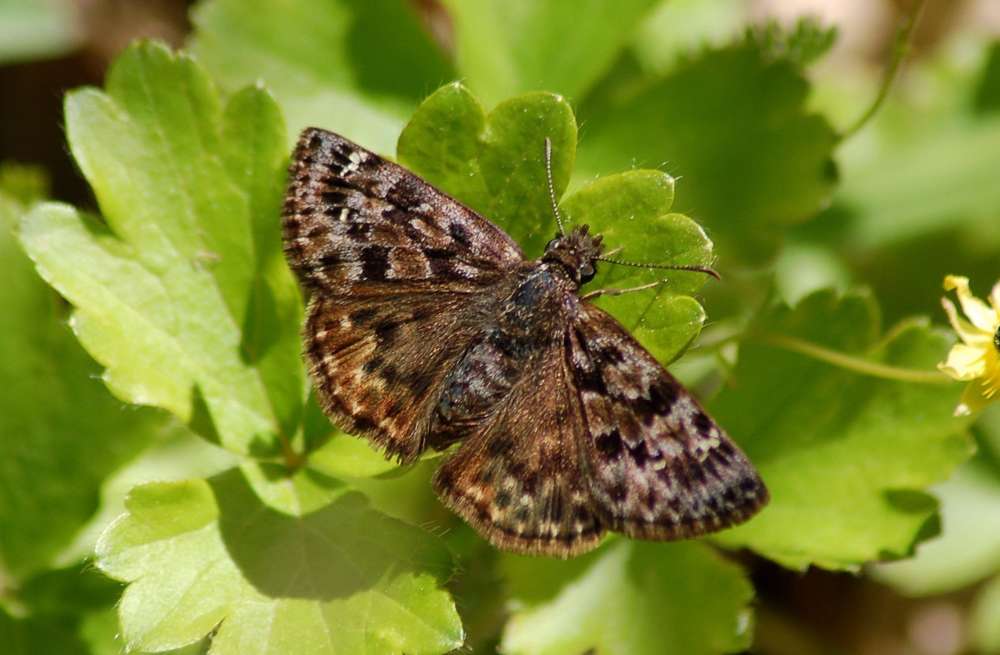A University of Guelph-led research team discovered nine mottled duskywing butterflies, during the early spring in Pinery Provincial Park, a hopeful indicator of the species’ reintroduction to their native habitat.
Now their success is being recognized with a unique beer.
Duskywing Witbier is the result of a long-term collaboration between Fixed Gear Brewing Co. and the Cambridge Butterfly Conservatory. Fixed Gear donated stale and unsold beer to the Conservatory, to provide the butterflies with a treat of fermenting liquids, similar to the ones they’re naturally attracted to.

The beer’s special ingredient is yeast collected from the butterflies and their host plants – New Jersey tea and prairie redroot – which are the only two plants the butterfly will lay its eggs on.
Once the yeast was collected with long swabs resembling large Q-Tips, Escarpment Labs developed and fermented it in preparation for brewing.
The final product is a hazy, sessional beer with a tangy, citrusy flavour that’s perfect for summer, said Brendan Roberts, the director of Operations and Community Relations at Fixed Gear.
“We still have about 100 cans left to package, but it’s moving pretty fast,” he added. “We expect to sell out within the next week or two.”
The success of the beer is handy since the whole initiative stems from the idea of raising awareness for the endangered butterfly species.
Reintroduction ‘A Really Exciting Milestone’
Since the first sighting of the mottled duskywings a year after their reintroduction, the research team has made 35 sightings of the species, said lead researcher Dr. Ryan Norris, an ecologist in the Department of Integrative Biology in U of G’s College of Biological Science.

“It’s really promising,” Norris added. “It’s rare to do a reintroduction and to find evidence the butterflies have successfully overwintered in the first year after a release.”
The sightings indicate some of the pupae and adults mottled duskywing butterflies, reared at the Cambridge Butterfly Conservatory, have successfully survived the winter at the Pinery.
The provincial park has spent years restoring the duskywings’ native habitats of open oak savannahs, tallgrass prairies and alvars, which are now rare in southwestern Ontario.
Once the butterfly reaches adulthood, it’s small and drab, said Norris. It also looks a lot like other duskywing species, making it hard to identify. So, naming a beer after them and putting their likeness on a can, is “a good way to raise their profile,” he added.
“People buying the duskywing beer might think ‘Well, what’s a duskywing?’ Hopefully, that will raise awareness about our work and the reintroduction at the Pinery.”
Contact:
Dr. Ryan Norris
rnorris@uoguelph.ca
